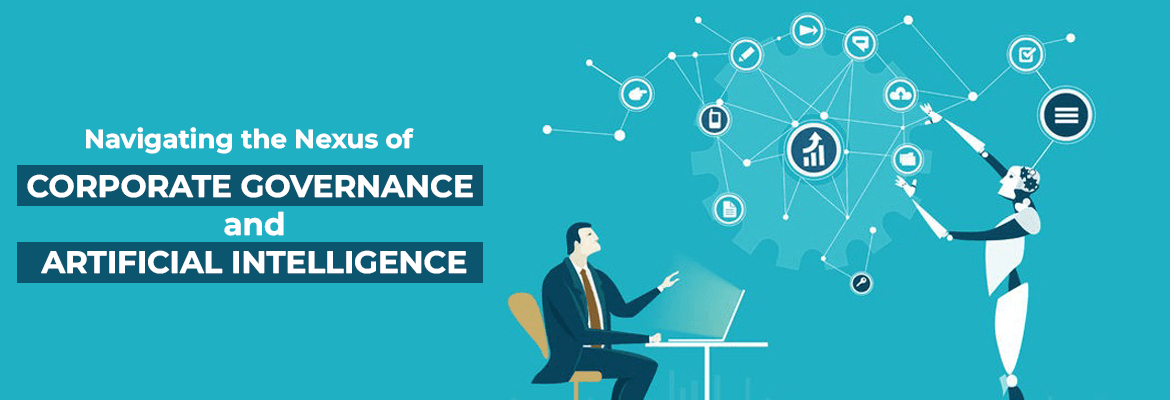Introduction
Corporate governance and artificial intelligence (AI) have emerged as two influential forces together shaping the modern business landscape. While corporate governance has long been a cornerstone of responsible business conduct, AI is revolutionizing industries and redefining how companies operate. This blog explores the intersection of corporate governance and AI, highlighting the challenges and opportunities it presents to businesses worldwide.
The Rise of AI in Corporate Governance
Artificial intelligence has swiftly made its way into various facets of corporate governance, transforming the way companies manage their affairs. Here are some key areas where AI is playing a crucial role:
- Risk Management: AI-driven analytics can help identify potential risks and vulnerabilities, enabling proactive decision-making and risk mitigation. Machine learning algorithms can analyze vast datasets to detect anomalies and predict potential threats, enhancing corporate governance by ensuring compliance and safeguarding against financial, legal, and reputational risks.
- Board of Directors: AI tools can provide valuable insights for boards of directors. Board members can access real-time data and predictive analytics to make informed decisions. AI-powered board portals streamline communication, facilitate document management, and enhance transparency.
- Ethical AI Use: Ensuring the ethical use of AI is a critical aspect of corporate governance. Companies must establish clear guidelines for AI development and deployment, addressing issues such as bias, privacy, and transparency. Robust governance frameworks are essential to monitor and enforce these guidelines.
- Compliance and Reporting: AI can automate compliance monitoring and reporting processes, reducing the risk of regulatory transgressions. AI algorithms can scan documents, contracts, and financial statements to ensure adherence to applicable laws and regulations.
- Cybersecurity: Protecting sensitive data is paramount for corporate governance. AI-driven cybersecurity systems can detect and respond to cyber threats more effectively than traditional methods, safeguarding the company’s assets and reputation.
Challenges at the Intersection
While AI offers numerous advantages for corporate governance, it also presents unique challenges:
- Transparency: AI algorithms can be complex and difficult to interpret. Ensuring transparency in AI decision-making processes is essential to maintain trust and accountability.
- Bias and Fairness: AI models can inherit biases from their training data. Companies must invest in mitigating bias to ensure fairness and prevent discrimination in their AI systems.
- Data Privacy: Handling vast amounts of data is a core component of AI. Ensuring compliance with data privacy regulations, such as GDPR or CCPA, is crucial for corporate governance.
- Accountability: Determining responsibility for AI-related decisions can be challenging. Companies need to establish clear lines of accountability for AI systems and their outcomes.
- Skill Gap: Many organizations lack the necessary expertise to develop, implement, and govern AI effectively. Bridging the skills gap is essential to harness the full potential of AI in corporate governance.
Conclusion
The integration of AI into corporate governance is reshaping how companies manage their affairs, enhance transparency, and make strategic decisions. While the benefits are substantial, they come with responsibilities. Companies must navigate the challenges associated with AI, ensuring transparency, fairness, and compliance with regulations.
As the AI landscape continues to evolve, businesses must adapt their governance frameworks to accommodate these technological advancements. Striking a balance between harnessing the power of AI and maintaining ethical and responsible corporate governance is key to long-term success in the modern business world. By doing so, companies can leverage AI’s capabilities to drive innovation, reduce risks, and meet the increasing expectations of stakeholders.

